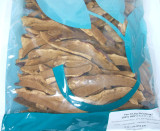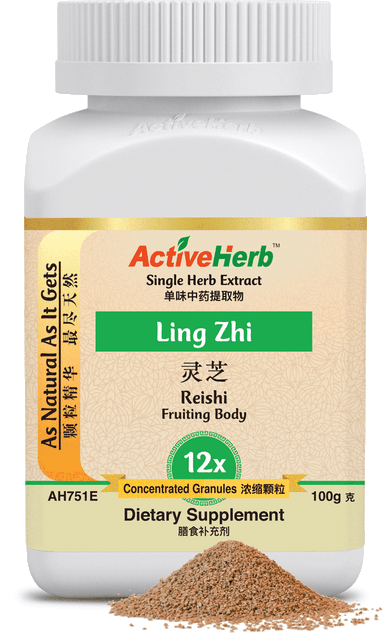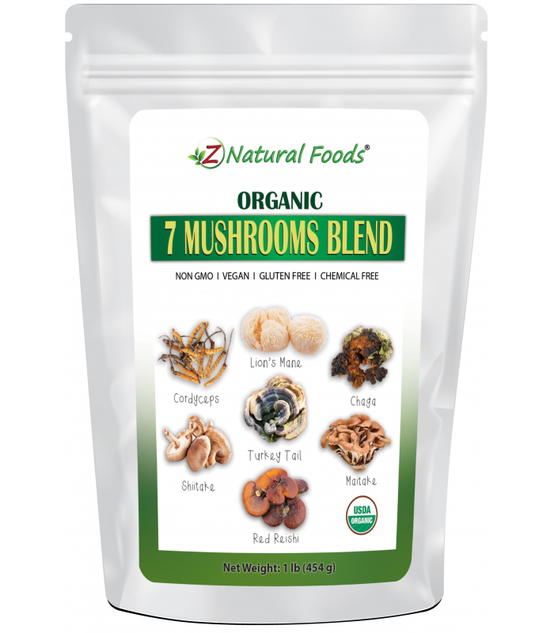What Are Reishi Mushrooms in Traditional Chinese Medicine?
Reishi mushrooms, also known as Lingzhi in Chinese, hold a prestigious place in Traditional Chinese Medicine (TCM) and have been revered for their medicinal properties for over 4,000 years. These mushrooms, often called the "Mushroom of Immortality," are deeply embedded in Chinese culture and are frequently depicted in ancient Chinese and Japanese art as symbols of longevity and spiritual power.
Historical Significance:
Reishi mushrooms are one of the oldest known medicinal mushrooms, with their use recorded as far back as ancient China. They were highly prized by emperors and royalty, who sought their reputed ability to promote long life, calmness, and spiritual insight. The mushroom is prominently mentioned in one of the most revered TCM texts, the Shennong Ben Cao Jing, where it is classified as a superior herb for enhancing vitality and well-being.
Medicinal Properties Of Reishi Mushroom In TCM:
In Traditional Chinese Medicine, Reishi mushrooms are regarded for their profound effects on multiple organ systems. Specifically, they are believed to influence the heart, lungs, liver, and kidney channels. Their primary actions in TCM include:
-
Balancing Qi (Vital Energy): Reishi is known for its ability to balance and replenish Qi, which is considered essential for maintaining health and vitality. By harmonizing Qi, Reishi supports the overall energy of the body, making it an excellent tonic for those dealing with fatigue or chronic stress.
-
Calming the Mind (Shen): Reishi is also valued for its calming effects on the mind, or Shen. In TCM, this is crucial for achieving emotional stability, reducing anxiety, and promoting restful sleep. Its ability to soothe the spirit makes it a popular remedy for those experiencing mental unrest, nervousness, or insomnia.
-
Relieving Respiratory Issues: Reishi is believed to benefit the lung meridian, helping to alleviate respiratory conditions such as cough, asthma, and wheezing. It is often used to support lung health and address chronic bronchitis and other lung-related issues.
-
Supporting the Heart and Liver: Reishi is thought to nourish and protect the heart and liver, promoting cardiovascular health and aiding in detoxification. In TCM, maintaining the health of these organs is crucial for overall balance and well-being.
Health Benefits Of Reishi Mushrooms:
Modern research supports many of Reishi’s traditional uses, highlighting its diverse range of health benefits:
- Cardiovascular Support: Reishi is believed to support heart health and improve blood circulation, making it beneficial for cardiovascular function.
- Liver Health and Detoxification: Reishi helps detoxify the liver, promoting its function in clearing toxins and supporting overall health.
- Immune System Enhancement: The mushroom is known for its immune-boosting properties, thanks to its rich content of polysaccharides and triterpenes, which stimulate immune cell activity and help the body fend off infections.
- Stress Reduction: Reishi's adaptogenic properties help the body manage stress, reducing cortisol levels and promoting a sense of calm.
- Cognitive and Energy Support: Reishi is believed to enhance cognitive function, memory, and energy levels, making it an ideal herb for those seeking mental clarity and vitality.
- Tumor-Modulating Effects: Some studies suggest that Reishi may have tumor-inhibiting properties, particularly due to its triterpenes and polysaccharides, which are being explored for their potential role in cancer treatment.
TCM Classification:
In TCM, Reishi mushrooms are considered to have sweet and neutral properties. This neutral nature makes them adaptable for various conditions, while their sweetness nourishes and strengthens the body's Qi. They are primarily associated with the heart, liver, and lung channels, reflecting their role in calming the spirit, augmenting Qi, and nourishing the blood.
Bioactive Compounds:
Reishi mushrooms are rich in bioactive compounds, which are responsible for their diverse health effects. These include:
- Triterpenes: Known for their anti-inflammatory and immune-modulating effects.
- Polysaccharides: These compounds are vital for boosting the immune system and promoting overall health.
- Amino Acids, Organic Acids, and Mannitol: Essential nutrients that support various bodily functions.
- Alkaloids and Coumarins: These contribute to Reishi’s medicinal effects, aiding in circulation and reducing inflammation.
Enduring Legacy:
Reishi mushrooms remain a cornerstone of natural medicine in Eastern cultures and continue to be the subject of modern scientific investigation for their health claims. Their esteemed place in both TCM and modern herbal medicine underscores their timeless value as a natural remedy for enhancing longevity, vitality, and overall well-being.
The Reishi mushroom’s association with the Far East, particularly ancient China, reflects its long-standing reputation as a precious herb. Historically, it was a sought-after remedy for royalty, who believed it could promote calmness, longevity, and even immortality. Today, Reishi remains a revered herb, bridging the gap between ancient wisdom and modern wellness practices.
The difference between red reishi mushrooms and black reishi mushrooms lies in the variety, appearance, and method of cultivation. Here are some key distinctions:
-
Variety: Red reishi mushrooms (Ganoderma lucidum) and black reishi mushrooms (Ganoderma sinense) are different species within the Ganoderma genus. They have similar properties and health benefits but may vary slightly in their chemical composition.
-
Appearance: Red reishi mushrooms have a distinct shiny and vibrant reddish-orange color on their upper surface, while black reishi mushrooms have a darker and more subdued blackish-brown color. The fruiting bodies of red reishi mushrooms are typically larger than those of black reishi mushrooms.
-
Cultivation: Red reishi mushrooms are predominantly cultivated in artificial environments using specific growth conditions. The cultivation methods involve growing the mushrooms on logs or wood-based substrates indoors. Black reishi mushrooms, on the other hand, are commonly found in the wild and are less frequently cultivated due to the challenges associated with their growth. As a result, red reishi mushrooms are more readily available in commercial markets and health products.
-
Traditional Use: In traditional Chinese medicine, both red reishi and black reishi mushrooms have been regarded as valuable medicinal mushrooms with similar health benefits. They are used to support overall well-being, enhance the immune system, promote vitality, and balance the body's energy.
-
Chemical Composition: While the general health benefits and bioactive compounds present in both red and black reishi mushrooms are similar, there may be some variations in their chemical profiles. Studies suggest that red reishi mushrooms may have higher concentrations of triterpenoids, polysaccharides, and other active components compared to black reishi mushrooms. These compounds contribute to the medicinal properties and therapeutic effects of these mushrooms.
It's worth noting that the terms "red reishi" and "black reishi" can sometimes be used interchangeably, leading to confusion. Additionally, there are subvarieties and regional variations within each species, further adding to the diversity of reishi mushrooms.
Overall, both red reishi and black reishi mushrooms have significant importance in traditional medicine and are known for their potential health benefits.
Product Description of Reishi Mushroom - Ling Zhi
Common Names: Reishi Mushroom, Red Reishi Mushroom
Botanical Name: Ganoderma lucidum
Pin Yin Name: Ling Zhi
Certified Organic: Yes, USDA Organic
Other Ingredients: None, nothing has been added to this product.
Package Size: One Pound (1lb)
Form: Powder Organic
Brand: Nuherbs
Cautions: Do not use if pregnant or nursing. Do not use if taking blood thinners. Do not use with any blood disorder.
California Prop 65
Summary of Benefits of Ling Zhi Red Reishi Mushrooms
- Tonify qi
- Nourish blood
- Induce tranquility
- Cardiovascular Support
- Immune Boosting
- Supports General Health and Longevity
Product Properties: Sweet, slightly bitter, slightly cold
Meridians: Heart and Lung Channels
Parts of Mushrooms

Mushrooms have a variety of different parts. See the diagram on the left to identify what each part of the mushroom is.
Cap: The cap is the top of the mushroom (and often looks sort of like a small umbrella or fan). Mushroom caps can come in a variety of colors but most often are brown, white, or yellow.
Gills, Pores, or Teeth: These structures appear under the mushroom's cap. They look similar to a fish's gills.
Ring: Is the tissue around the upper part of the mushroom stem.
Stem or Stipe: The stem is the tall structure that holds the cap high above the ground.
Volva: The volva is the protective veil that remains after the mushroom sprouted up from the ground. As the fungus grows, it breaks through the volva.
Mycelium: The mycelium of a mushroom is the vegetative body of fungi: a mass of branching filaments (hyphae) that spread throughout the nutrient substratum (an underlying layer) as defined by the McGraw-Hill Dictionary of Scientific & Technical Terms, 6E, Copyright © 2003 by The McGraw-Hill Companies, Inc.
References:
http://www.tcmwiki.com/wiki/ling-zhi
http://www.huffingtonpost.com/paul-stamets/reishi-mushrooms_b_2200808.html
https://www.ncbi.nlm.nih.gov/pubmed/23796220
https://www.mskcc.org/cancer-care/integrative-medicine/herbs/reishi-mushroom
https://www.ncbi.nlm.nih.gov/pubmed/29953399
(1) https://www.ncbi.nlm.nih.gov/pubmed/29624845
Wachtel-Galor, S., Yuen, J., & Buswell, J. A. (2011). Ganoderma lucidum (Lingzhi or Reishi) - A Medicinal Mushroom. In Herbal Medicine: Biomolecular and Clinical Aspects (2nd edition). CRC Press/Taylor & Francis.
Zhou, X., Gong, Z., & Su, Y. (2019). Advances in Research on the Health Benefits of Black Reishi Mushroom (Ganoderma sinense) in China. Food Science and Human Wellness, 8(3), 267-274. doi:10.1016/j.fshw.2019.07.003.

























